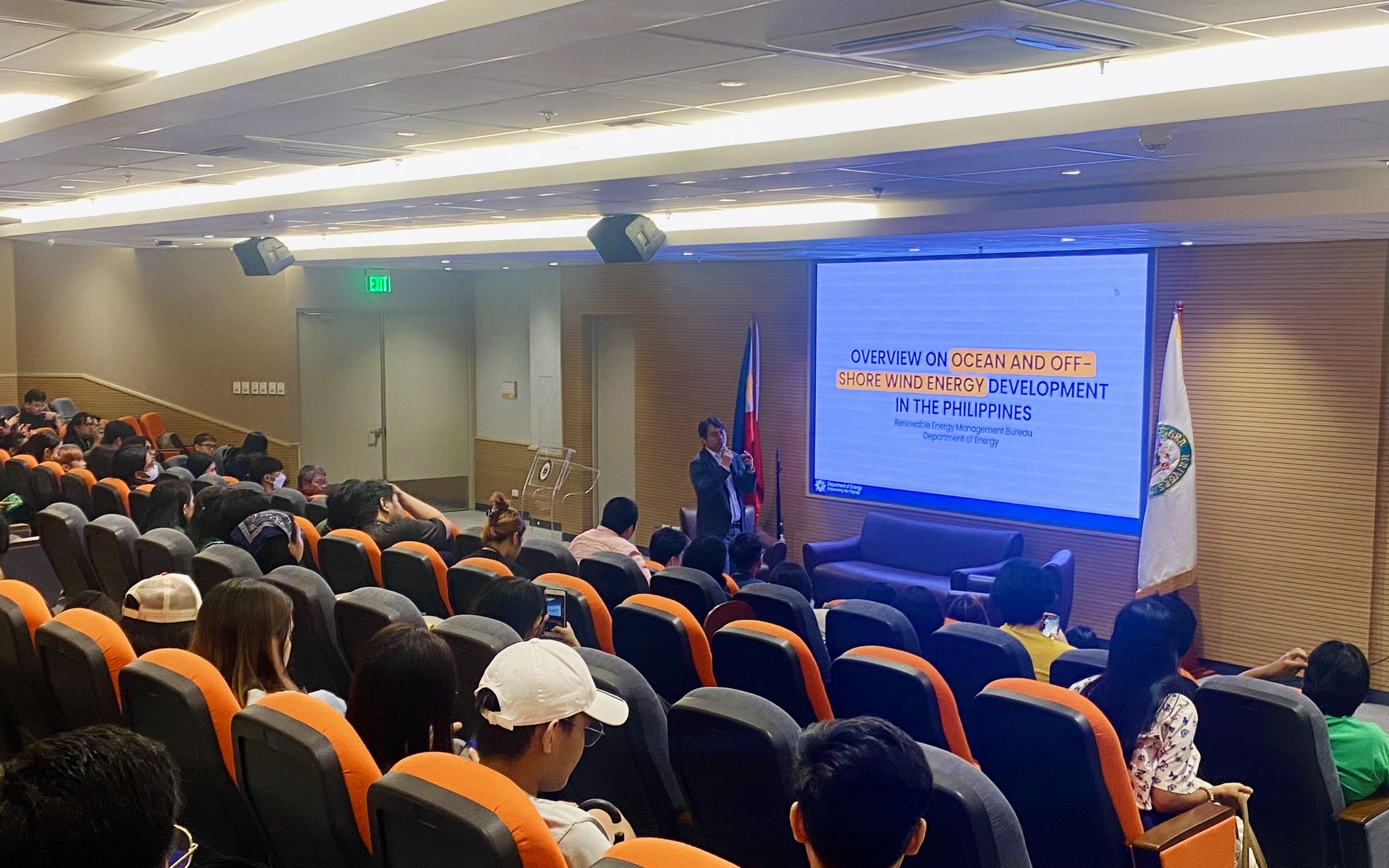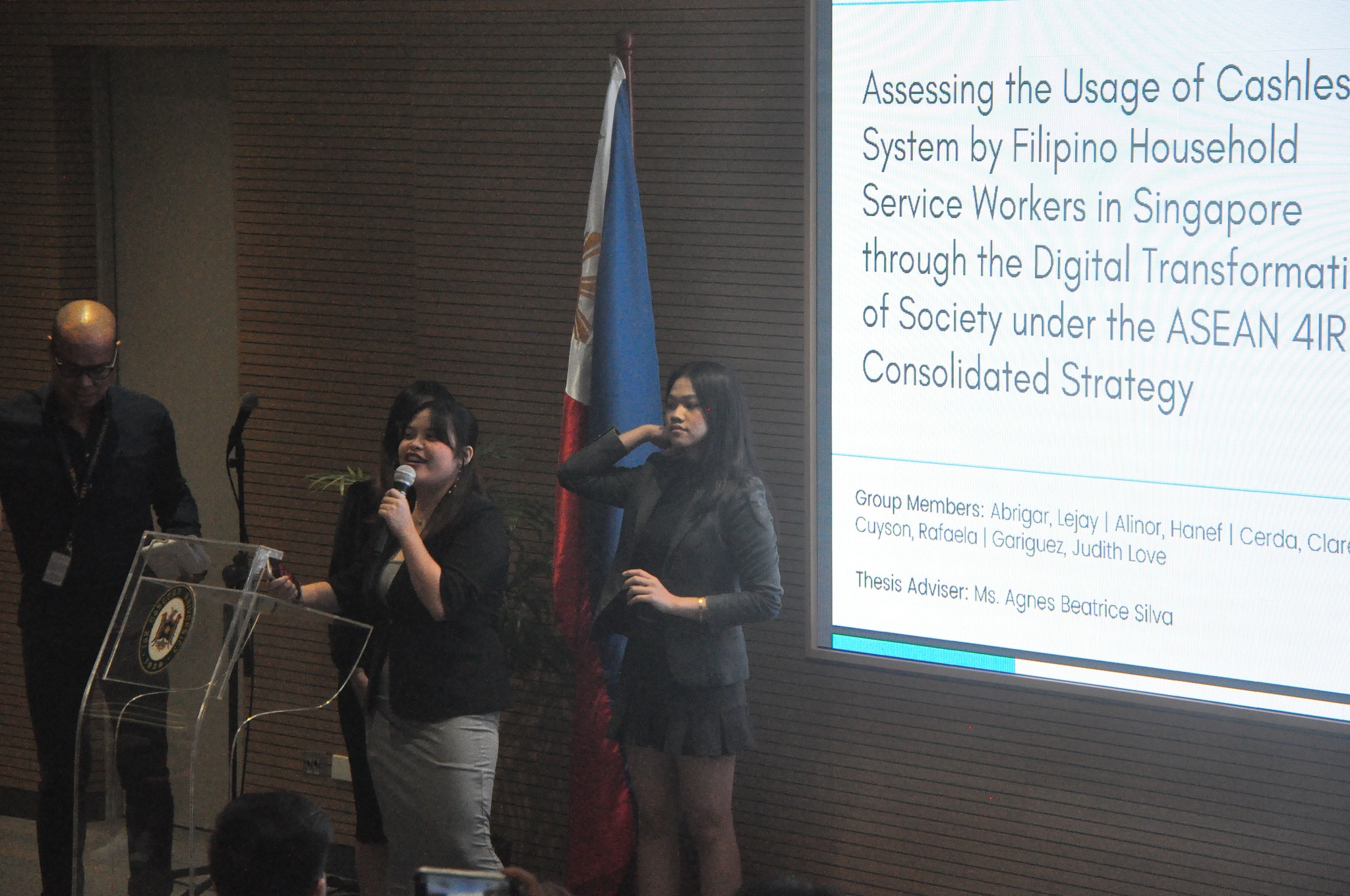This program utilizes and adopts a mixture of student-centered learning approach incorporated with mini-lectures and simulations for the students to have a firmer understanding of the theories and practice of International Studies.
Program Curriculum
The initial two years of the BAIS program are centered on General Education courses crafted to mold the students’ core competencies like critical and analytical thinking, oral and written communication skills, and independent learning.
Simultaneously, introductory professional courses such as History of Civilization, and History of East Asia, and Introduction to International Studies are also present during these crucial two years which provide learners with rudimentary knowledge in international studies.
On their second year, students are now introduced to intermediate level of professional courses such Globalization and World Politics, Theories of Area Studies, Geopolitics, and Introduction to International Studies Research for the first semester, and International Political Economy, Introduction to International Development, and Theories of International Relations for the second semester. Elective courses will be introduced, as well as foreign language courses during the third year of the students.
Well-being and work-life balance is also a key feature of the BAIS curriculum. Throughout their stay in the university, learners are encouraged to plan their own Wellness and Recreation Program (WRP), a university-wide course which intends to develop their physiological and psycho-social fitness as well as encourage social responsibility and community involvement.
Teaching and Learning Approaches
The BAIS program has been creatively crafted to empower our students into becoming independent, lifelong learners as future professionals in the field of International Studies. As such, this program utilizes the following varied teaching-learning approaches focused on learners’ needs and capabilities:
- Student-centered learning. The BAIS program adheres with the University’s educational philosophy and learning paradigm which emphasizes active and dynamic learning to develop the higher-order thinking skills of our learners. This entails designing engaging activities and encouraging collaboration between teacher and student inside the classroom to facilitate effective higher learning.
- Didactic approach. The program utilizes a variety of lectures, discussions and demonstrations in developing theoretical and foundational knowledge in International Studies and other aligned social science disciplines.
- Interdisciplinary approach. BAIS offers an interdisciplinary understanding of the international. Coupled with the liberal GE courses which expose learners to the humanities and social sciences, the program hopes to produce well-rounded, adaptable and analytical international studies professionals and practitioners.
- Blended learning. The BAIS program recognizes the changing technological landscape which our current generation of learners must navigate. Geared towards ubiquitous and independent learning, some courses are delivered through a mix of online virtual classrooms, self-study modules and face-to-face sessions. The University utilizes Canvas, a world-class learning management system to facilitate this mode of delivery.
- Research-based approach. Aside from didactic and demonstrative approaches, the program utilizes case studies and research-based materials to ensure that learners are provided with updated knowledge and practices in the field. Moreover, the program encourages learners to develop an inclination towards research and scientific thought.
Assessment and Research Work
Throughout the course of the program, varied assessments and assessment-related tasks are deployed depending on the negotiation between the teachers and the learners. Teachers are encouraged to develop relevant formative assessments designed to help learners prepare for capstone summative assessments.
Assessments are a combination of traditional pen-and-paper tests, practical examinations, research work and performance-based tasks. These include quizzes and summative tests, reports and presentations, case analyses, research-based writing, return demonstration and peer assessments. Apart from course-based assessments, research is also integrated into the curriculum with curriculum such as Introduction to International Studies Research, Methods of Research in International Studies, and Thesis Writing.
Internship
Internship is an integral part of the BAIS curriculum. The International Studies Internship Program is offered during the summer term after finishing their third year. A total of 220 of work-related hours are needed to complete the six (6) unit credits of the Internship course.



